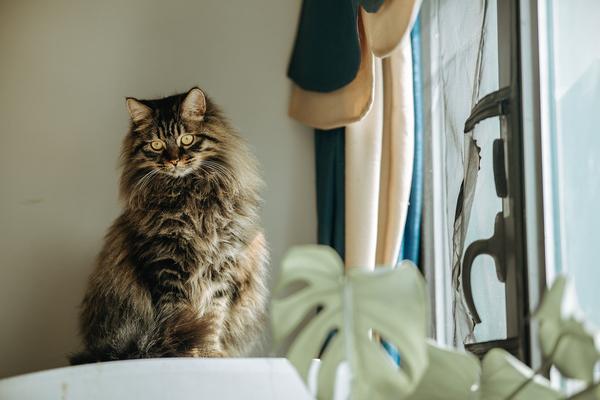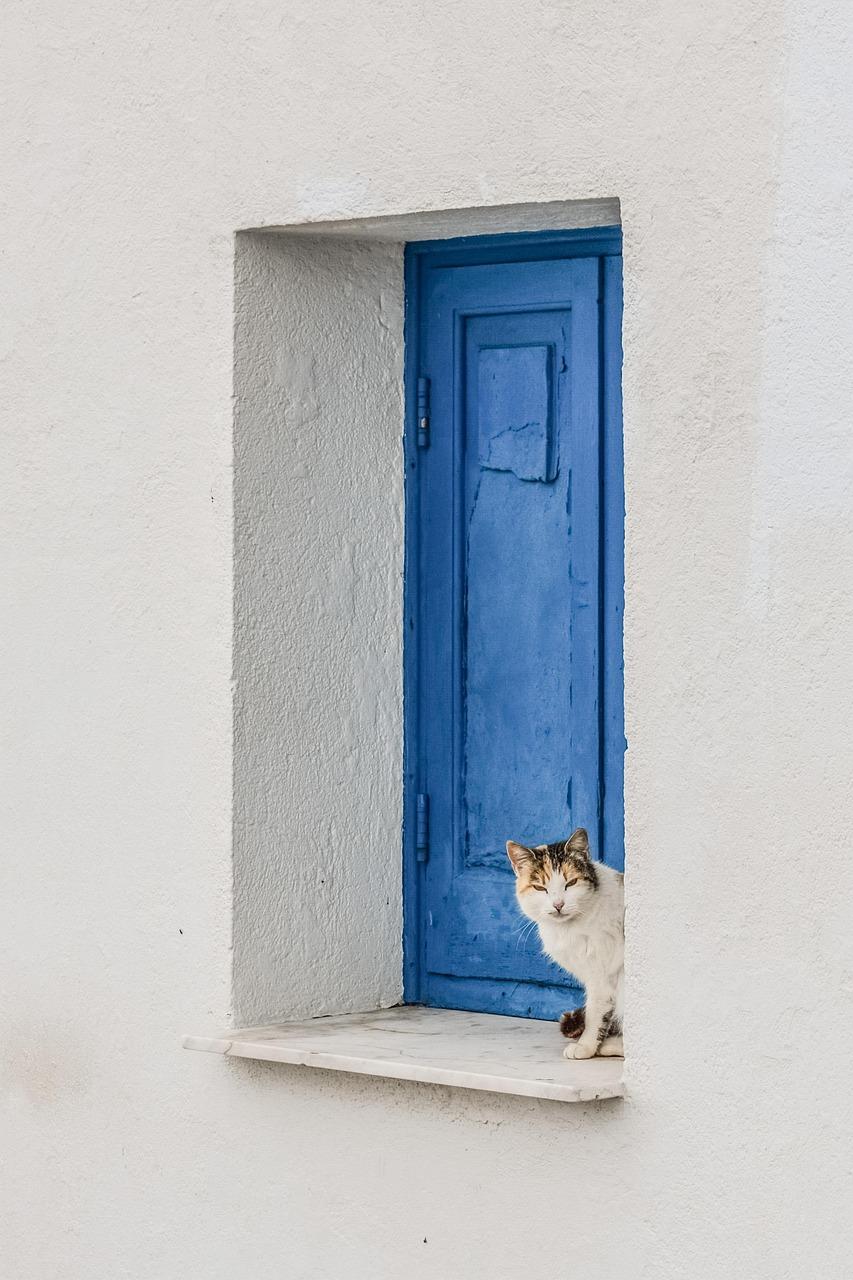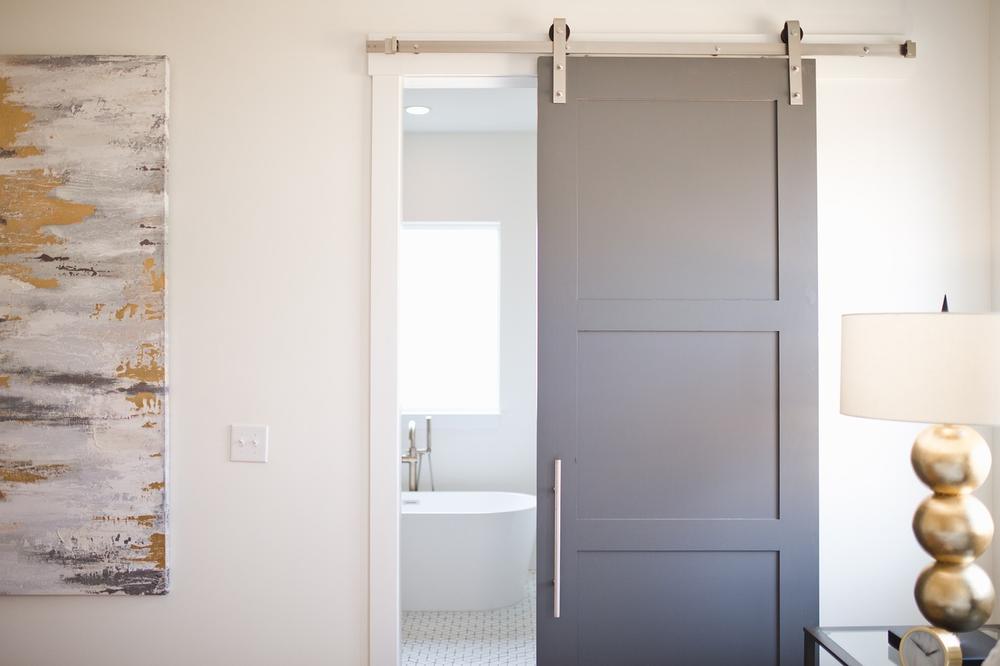Why Does My Cat Wait Outside My Bedroom Door?

Ever wonder why your cat waits anxiously outside your bedroom door, giving you that heartbreaking look of longing?
Are they desperately missing your company or plotting something sinister?
You're not alone in feeling concerned about your feline's behavior. 😺
Maybe you've even caught yourself imagining the worst-case scenarios.
But fear not, for there are answers to be uncovered and explanations to be found.
So, let's delve into the mysterious world of our feline friends and figure out why your bedroom door has become their favorite hangout spot.
Shall we begin?
Possible Health Issues: Why Does My Cat Wait Outside?
Why does your cat wait outside the bedroom door?
Here are some possibilities:
- Pain or discomfort: Your cat could be in pain, like from arthritis. To help, give them comfy bedding and check with a vet about joint supplements.
- Desire for attention: Some cats just crave more time with you. Waiting by the door is their way of getting closer to you.
- Hunger or cognitive issues: If your cat meows outside the door, they might be hungry or have cognitive problems. Make sure they have enough food and water, and speak to a vet if you suspect any cognitive issues.
- Looking for a mate: It's natural for cats to want to find a partner. If your cat isn't fixed, waiting by your door could mean they're on the hunt.
- Separation anxiety or fear: When owners close doors, cats can get anxious or scared. They wait outside to feel secure and close to you.
- Territorial behavior: Some cats claim areas as their own and protect them, like bedroom doors. Waiting there is their way of marking territory and guarding it.
- Love and attachment: Cats who wait outside the door do it out of love and attachment. They want to keep an eye on your routine and make sure everything's okay.
Every cat is different, so pay attention to their behavior and talk to a vet if you're worried about their well-being.

And it gets more fascinating...
The behavior of waiting outside the bedroom door can also be linked to a cat's natural instincts and desire for social interaction.
In the next section, we'll delve deeper into these intriguing explanations and provide practical tips to address your cat's needs.
Understanding Territory and Marking Behavior in Cats
Cats exhibit territorial and marking behavior by waiting outside bedroom doors. This behavior signifies their claim on that space and their need to protect it. Providing scratching posts and vertical spaces can redirect this behavior. Understanding and accepting their unique communication and territorial instincts is crucial for a harmonious relationship.
Have you ever wondered why your cat waits outside your bedroom door?
You're definitely not alone in this curiosity.
It turns out that this behavior has to do with territory and marking.
Cats are extremely territorial creatures and have a strong instinct to mark their territory.
So, when your cat waits outside your bedroom door, they’re essentially staking a claim on that space and declaring it as their own.
It's like they're saying, "this bedroom is mine, and I'm protecting it."
Now, if you're looking for a way to redirect this behavior, one option is providing designated scratching posts or vertical spaces throughout your house.
This gives your cat an alternative outlet for their scent-marking activities, diverting their attention away from the bedroom door.
Remember, cats love leaving their mark in more ways than one! 😺
But let's explore the different behaviors around bedroom doors.
The reasons can vary, so bear with me.
Some cats guard the door to protect you from harm or keep potential prey away. Others sleep outside the bedroom, acting as vigilant sentinels to safeguard both your home and yourself while you sleep.
Some cats sit by the door as a reminder of routine, while others wait out of fear stemming from traumatic past experiences. And let's not forget that your cat might simply adore the bedroom because it contains your belongings and your scent, bringing them comfort and familiarity.
The bedroom is their purr-sonal safe haven.

Understanding your cat's territory and marking behavior is important, but accepting them for who they are matters just as much. By observing and comprehending their behavioral changes, you can gradually introduce alterations into their lives that might alleviate their need to wait outside your bedroom door.
Now, let's dig deeper into the core of this issue:
Why are they really waiting there?
Truth be told, the reasons can vary extensively.
Your cat might simply crave attention or playtime with you.
They could be driven by curiosity, eager to explore what lies behind that mysterious door.
Some cats view it as an integral part of their territory and feel compelled to keep watch over it.
Others wait outside your bedroom door for the purpose of protecting you from potential dangers or just wanting to stay in tune with your habits and routines.
Please note that cats have their own unique ways of communicating their needs – whether it's through meowing, pawing, knocking things down, or purring up a storm.
By understanding their territorial instincts and deciphering their individual method of communication, you can work towards finding a comfortable balance for both you and your feline friend.
Territorial behavior, such as guarding doors, is often seen in dominant or alpha cats.
So, if your cat exhibits this behavior, they might simply be asserting themselves as the rightful king or queen of their domain.
However, if you're eager to dive deeper into the mysterious behaviors of our feline friends, I highly recommend checking out my article on Why Does My Cat Wait Outside the Bathroom.
In this guide, you'll discover fascinating insights about why cats exhibit this behavior and whether it is a common trait among these enigmatic creatures.
So, if you're curious to uncover the secrets behind your cat's behavior, I invite you to explore my blog post and satisfy your intrigue.
How Can I Stop My Cat From Sitting at My Bedroom Door?
Stopping your cat from sitting at your bedroom door can take some effort, but it's definitely doable.
Here are five practical ways to achieve this:
- Encourage alternative behaviors: Provide your cat with a cozy bed or a designated play area in another room to redirect their attention away from the bedroom door.
- Move without giving attention: Whenever your cat sits at the bedroom door, gently move them without providing any extra attention. This helps discourage the behavior.
- Use scents cats dislike: Cats are sensitive to certain scents like citrus or bitter apple. Spraying these scents near the bedroom door can deter your cat from sitting there.
- Establish pre-bedtime routine: Spend quality time with your cat before going to bed. This reinforces that the bedroom is off-limits for sleeping, and reassures them that they are loved.
- Provide enrichment toys: Interactive toys, puzzle feeders, and scratching posts can keep your cat mentally stimulated and entertained, reducing their need to wait outside the door.
Setting boundaries and addressing your cat's needs through positive reinforcement will help stop this behavior.

But what if you actually want your cat to sleep in your bedroom?
Is it a good idea or will it cause more harm than good?
Let's explore the benefits and considerations of letting your furry friend join you for a snooze...
Allowing Your Cat to Sleep in Your Bedroom
Allowing your cat to sleep in the bedroom can be a wonderful bonding experience.

Here are some key reasons why you should consider letting your cat sleep with you:
- Enhances the bond between owner and cat: Sharing a sleeping space promotes closeness and strengthens the emotional connection between you and your feline friend.
- Provides comfort and relaxation: Cats love being close to their owners while they sleep, as it provides them with a sense of security and peace.
- Observes household activities: By allowing your cat in the bedroom, they have the opportunity to observe your daily routines and feel included in the family dynamic.
- Offers companionship during distressing times: Cats have an innate ability to sense when their owners are feeling down, and having them by your side during difficult moments can bring immense comfort.
However, there may be situations where keeping your cat out of the bedroom is necessary.
If you have allergies or hygiene concerns, you must establish boundaries and implement measures to address these issues effectively. This could include using air purifiers or designating pet-free zones within the bedroom.
Remember that each cat is unique, so the decision to allow them in your bedroom depends on personal preferences and the level of attachment your cat has to you. 🐾
Ending notes
Key takeaways:
- Cats wait outside bedroom doors for various reasons: seeking attention, hunger, dirty litter box, separation anxiety, love and attachment, fear, habit, territory, etc.
- Cats communicate their needs through meowing, pawing, knocking things down, etc.
- Cats guard doors as a territorial behavior, often seen in dominant or alpha cats.
- To stop cats from sitting at bedroom doors, try: moving the cat without giving attention, closing the bedroom door, using scents the cat doesn't like, spending dedicated time with the cat, providing enrichment and interactive toys, setting boundaries, reinforcing positive behavior.
- Cats may wait outside other doors in the house for attention, comfort, or out of boredom.
- Excluding cats from the bedroom may harm the bond between cat and owner; gently redirect the cat instead.
- Cats may feel strongly attached to their owners and desire proximity, including sleeping with them.
- Keeping bedroom doors open for cats depends on personal preferences and the cat's level of attachment.
- Sleeping on their owners can provide cats a sense of security and safety.
And that wraps up today's article.
If you wish to read more of my useful articles, I recommend you check out some of these: Does Your Cat Nose Bump You, My Cat Doesnt Want to Mate, Why Is My Cat Sniffing Everything All of a Sudden, My Cat Is Aggressive Towards Guests, and Why Do Cats Yowl at Each Other
Talk soon,
-Sarah Davis